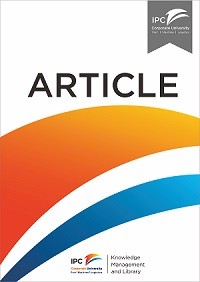Article
Establishing an order allocation decision support system via learning curve model for apparel logistics
Apparel firms confront the problem with effective order allocation among factories when conducting global logistics operations. The problem is non-deterministic polynomial-time hard and often complicated to obtain an optimal solution. This research tried to solve, by heuristic method, the problem via applying the learning curve to the capacity planning to improve the decision-making on global logistics operations. It designed a two-stage order allocation decision support system. This two-stage model includes: (1) selecting and sorting factories and (2) dynamic learning of order allocation. The results demonstrated that the system could develop the most suitable order allocation model among multiple factories and minimize the order allocation cost. This research further provided a case study to help verify the designed system applied in the global logistics operations of apparel industry. The proposed system seems to be more conforming to the real-world production and could offer a better suggestion concerning order allocation.
Ketersediaan
Informasi Detail
- Judul Seri
-
Journal of Industrial and Production Engineering
- No. Panggil
-
ATC LO CHE e
- Penerbit
- Taiwan : Taylor and Francis., 2014
- Deskripsi Fisik
-
13 p.
- Bahasa
-
English
- ISBN/ISSN
-
-
- Klasifikasi
-
LO
- Tipe Isi
-
-
- Tipe Media
-
-
- Tipe Pembawa
-
online resource
- Edisi
-
Vol. 31, No. 5, 274–285
- Subjek
- Info Detail Spesifik
-
-
- Pernyataan Tanggungjawab
-
Ming-Kuen Chen
Versi lain/terkait
| Judul | Edisi | Bahasa |
|---|---|---|
| An emergency order allocation model based on multi-provider in two-echelon logistics service supply chain | Vol. 16 Iss 6 pp. 391 - 400 | en |
| Planning enterprise resources by use of a reengineering approach to build a global logistics management system | Vol. 101 Iss 9 pp. | en |
| Global logistics management curriculum: perspective from practitioners in Taiwan | Volume 18 · Number 4 · 2013 · 376–388 | en |
Lampiran Berkas
Komentar
Anda harus masuk sebelum memberikan komentar

 Karya Umum
Karya Umum  Filsafat
Filsafat  Agama
Agama  Ilmu-ilmu Sosial
Ilmu-ilmu Sosial  Bahasa
Bahasa  Ilmu-ilmu Murni
Ilmu-ilmu Murni  Ilmu-ilmu Terapan
Ilmu-ilmu Terapan  Kesenian, Hiburan, dan Olahraga
Kesenian, Hiburan, dan Olahraga  Kesusastraan
Kesusastraan  Geografi dan Sejarah
Geografi dan Sejarah